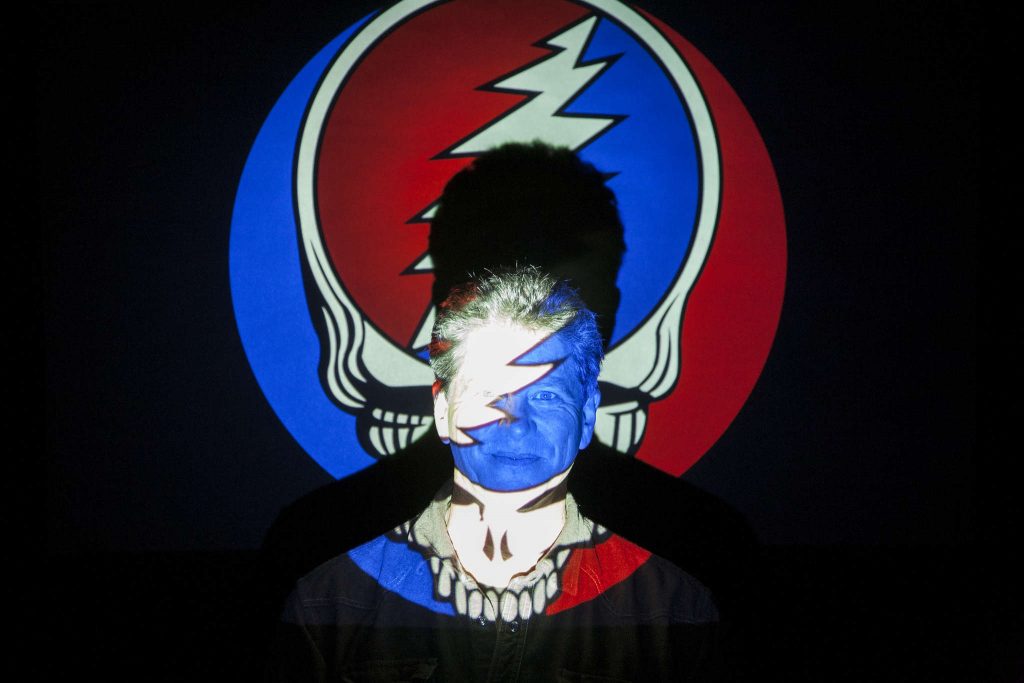Turning 50 years old this year is the iconic jam band The Grateful Dead, who once occupied the streets of Haight-Ashbury, acclaimed the musical influence to the Acid Tests and was a leading contributor to the Summer of Love.
Released just in time for the band’s birthday is the book titled, “No Simple Highway: A Cultural History of the Grateful Dead,” written by SF state Professor Peter Richardson, which gives a vivid account of how the Grateful Dead found such enduring and memorable success.
Richardson is a humanities and American studies lecturer at SF state who teaches a variety of classes including California Culture, a Biography of the City of Los Angeles and San Francisco and Values in American Life. Prior to “No Simple Highway,” Richardson has published two books about political journalism in America, allowing him to study a variety of topics relevant to the ’60s and ’70s.
During an exhibit about the year 1968 at the Oakland museum, Richardson met radio station KPFA’s “Grateful Dead Hour” host David Gans, who got him thinking about the band and its story.
“I thought, wow, maybe I should have something in my California Culture class that has to do with the Grateful Dead, since they seem to embody so many of the themes that we talk about in class,” Richardson said.
Published Jan. 15, Richardson began writing his book about the Grateful Dead after attending many readings and conferences hosted by the Grateful Dead Scholars Caucus and performing extensive research at the Grateful Dead archive at UC Santa Cruz.
The Grateful Dead was an integral part of the San Francisco culture starting in the ’50s around the time of Beat literature. Jerry Garcia and the rest of the Grateful Dead members discovered the fiction of Jack Kerouac, an American novelist and poet whose work explored being on the open road. The writer influenced the group’s music and what it gave back to the community.
In the ’60s, the Grateful Dead emerged from a very vibrant, Dionysian, mid-century San Francisco art scene that seemed to put emphasis on spontaneity and improvisation. Richardson argued that the band was also a part of shaping San Francisco’s unique impatience with standardized or predictable culture, a characteristic that can still be seen in the city today.
The Rock and Roll Hall of Fame labels the Grateful Dead as “the most important band of the psychedelic era and among the most groundbreaking acts in rock and roll history.” In “No Simple Highway,” Richardson aimed to outline what made the Grateful Dead’s music an operation so distinctive.
“I just asked this fundamental question. Why were they so successful for so long?”
In the book, it came down to three factors that helped to explain the Grateful Dead’s long term success.
The first is an appetite for ecstasy, not the drug, but rather an experience for total rapture. Richardson said that people want this in their lives and that the Grateful Dead gave it to them through performance.
“The Beatles had their last performance at Candlestick park in 1966, they came out in their identical suits and played eight songs in 30 minutes, and ran off. That’s what was happening in rock and roll before San Francisco got their hands on it,” Richardson said.
Mobility was Richardson’s second factor. Since the Grateful Dead chose to maintain residency in San Francisco, and because its album sales were low, the group toured often. It became a legendary road band, going from one place to the next with thousands of experiences, accumulating a following along the way. By doing so, the Grateful Dead built itself a reputation for wanderlust that tapped into an American fascination with the open road.
Richardson’s third factor was the Grateful Dead’s ability to foster community.
“They took that very very seriously in a way that the Beatles didn’t, Bob Dylan didn’t, the Rolling Stones didn’t,” Richardson said. “Because they built that community, grew it and consolidated it, they were able to do a lot of things musically.”
Regardless of album sales, the Dead knew its fan base would always showed up for concerts, which offered more musical freedom. The music and band continued to evolve and adapt, but the values of integrity and authenticity of the Grateful Dead were very stable.
“Our audience is like people who like licorice,” Garcia said in a 1981 interview. “Not everybody likes licorice, but the people who like licorice really like licorice.”
Throughout the book, Richardson intended to transform the stereotypical depiction of the Grateful Dead’s dedicated fan base, known as Deadheads, who were often portrayed as a crowd of burned out hippie stoners. While this generalization was not entirely false, it narrowed on only a fraction of the Dead’s overall following. Richardson explained that sociologists estimate about one-third of the band’s admirers were serious professionals, including people like U.S. Senator Patrick Leahy, U.S. Senator Al Franken and Vice President Al Gore.
“They had this appeal that went well beyond this kind of drug addled group of stragglers and gypsies,” Richardson said. “There was always a lot more diversity in their fan base than the media gave them credit for.”
“No Simple Highway,” draws on new information, interviews and analysis to the Grateful Dead’s career spanning three decades. More than that, it reflects on the musical group’s story as an alternative American voice in the second half of the 20th Century. The band’s music, values and sense of community impacted more than just rock and roll. It impacted American culture.
“That’s the thing about the Dead,” Richardson said. “You don’t have to like their music to like their story.”







